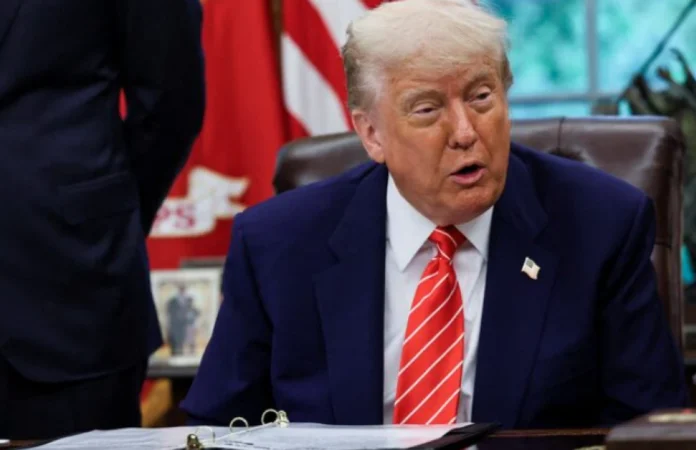
U.S. President Donald Trump hosted leaders from five African nations at the White House this week, promoting a strategic pivot in America’s engagement with the continent, from traditional aid to trade-driven partnerships.
In a meeting with the presidents of Gabon, Guinea-Bissau, Liberia, Mauritania, and Senegal, Trump declared the U.S. was “shifting from aid to trade,” positioning American business as a more sustainable force for development in Africa than foreign aid or Chinese investment.
“There’s great economic potential in Africa, like few other places,” Trump said, emphasizing that investment and trade would be “far more effective and sustainable” than previous approaches. He added that the U.S. treats Africa “far better than China or anybody else.”
The meeting comes as China continues to deepen its economic footprint across Africa, particularly in the natural resources sector. All five nations represented possess significant reserves of critical minerals including cobalt, manganese, and lithium, materials vital to modern technologies.
Trump’s administration has slashed U.S. foreign aid to Africa and dismantled the U.S. Agency for International Development, drawing criticism from global health and humanitarian organizations. A recent Lancet study warned that such cuts could result in over 14 million additional deaths across Africa by 2030.
Still, the African leaders appeared receptive. Gabonese President Brice Clotaire Oligui Nguema urged the U.S. to invest in resource development, warning, “Otherwise, other countries might come instead of you.” Liberia’s President Joseph Boakai endorsed Trump’s “America First” message, while Senegal and Mauritania also welcomed U.S. engagement.
The U.S. International Development Finance Corporation (DFC) announced new funding for a potash mining project in Gabon, marking one of the few remaining development-focused efforts under Trump’s economic vision.
Yet, skepticism remains. African Union officials have questioned how deeper trade ties can be forged under U.S. policies that impose steep tariffs and strict visa restrictions on African nations. Critics also cite Trump’s fraught history with the continent, including derogatory remarks reported in 2018 and a tense meeting with South Africa’s president in 2023.
Despite the past controversies, Trump signaled openness to visiting Africa and expressed confidence in expanding U.S.-Africa economic cooperation. “We could do this all day long,” he said in response to praise from the visiting leaders.
Observers now await whether Trump will organize a broader Africa summit during the upcoming United Nations General Assembly in September, as anticipation grows over how his evolving Africa policy will shape future U.S. engagement on the continent.
Written By Rodney Mbua


















